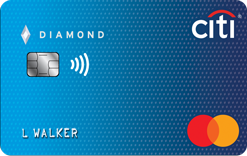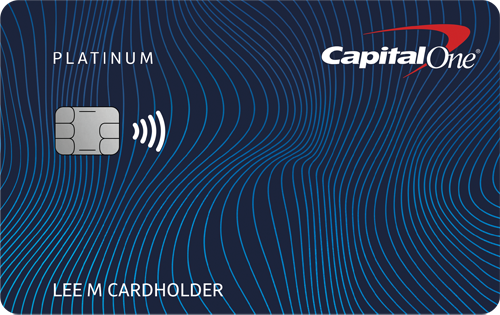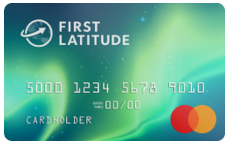A secured credit card is a fantastic option if you have poor credit and won’t be approved for an unsecured credit card. Check out the best secured credit cards and start creating excellent credit for yourself.
Having a credit card on hand is helpful for many situations including large purchases, funding a vacation, or emergency expenses.
What happens if you don’t have enough credit or have too poor a credit score to get approved for a standard credit card? Until a little while ago, short of robbing a bank (not recommended), there wasn’t much the average Joe could do with his poor credit history.
But today, the secured credit card is on the scene, and people everywhere are gaining from this equal opportunity lender. Perhaps this is the solution you’ve been searching for as well.
Overview: Best secured credit cards
Here’s a closer look at what secured credit cards are all about, what the benefits are, and we’ll even delve into the best secured credit cards to give you a good idea of what’s available to you right now.
- Best for everyday interest rate – Citi® Secured Mastercard®
- Best for low deposit requirement – Capital One Platinum Secured Credit Card
- Best for applicants with no credit history – OpenSky® Secured Visa® Credit Card
- Best secured card with rewards – First Latitude Secured Mastercard® Credit Card
The Citi® Secured Mastercard®
Citi® Secured Mastercard

All information about Citi Secured Card has been independently collected by MoneyUnder30.com. Content has not been reviewed or approved by the issuer
Welcome Offer
N/A
Rewards
N/A
Annual Fee
$0
Our Thoughts
A solid option for those new to credit or looking to build credit with responsible use.
Offer details accurate as of 10/23/23
Highlights:
- $200 – $2,500 line of credit.
- Accepted everywhere Mastercard is accepted.
- No annual fee.
Terms
The Citi® Secured Mastercard® offers an initial credit line of $200 – $2,500 and does not charge an annual fee. This offers cardholders an excellent opportunity to build their credit score without having to worry about an ancillary cost. Also, the standard purchase APR is , which is very competitive for a secured product.
Flexible Payment Due Date
If you’re someone who likes to line up their payment dates, the Citi® Secured Mastercard® allows for a flexible payment due date. Beginning, middle, or the end of the month dates are available – so whichever works for you, works for Citi.
Free FICO Score Online
One of the primary reasons a cardholder will apply for a secured credit card is to improve their credit score. There’s no better motivation for keeping on a path of good habits than to see the progress happen. The Citi® Secured Mastercard® offers a free FICO score online for all cardholders. Hopefully, each month this means watching your score increase while you use your secured card responsibly.
Capital One Platinum Secured Credit Card
Capital One Platinum Secured Credit Card
Annual Fee
Intro APR, Purchases
Intro APR, Balance Transfers
Regular APR
Credit Needed
$0
N/A
N/A
30.74% (Variable)
Highlights:
- $200 line of credit with lowest deposits around.
- Credit review after only six months.
- Accepted almost everywhere.
- No annual fee.
Terms
The Capital One Platinum Secured Credit Card has some of the most attractive terms in the industry, making it an appealing card to apply for. If you meet the somewhat high standards, you will enjoy the lowest deposit requirements around and extremely flexible terms. Depending on your creditworthiness, you could get a secured card with a $200 limit for as little as a $49, $99, or a $200 deposit. Considering that most secured credit cards require anywhere between $300-$500, that’s a much more reasonable goal.
Pay Down Deposits
Additionally, the Capital One Platinum Secured Credit Card takes a bold step by letting approved cardholders pay down their deposit in installments if they can’t afford the entire sum at once. This is a rare feature for a secured credit card and one that will help anyone who is struggling financially get a foot in the door of financial rejuvenation.
Online Access
The Capital One Platinum Secured Credit Card offers 24/7 online access so you can handle your account via your mobile app or computer whenever you want. Also, Capital One will report your card activity to the three major credit bureaus. This is a good thing as it will help you start rebuilding (or building from scratch) your credit history in a positive way.
» MORE: Read our Capital One Platinum Secured Credit Card review
OpenSky® Secured Visa® Credit Card
OpenSky® Secured Visa® Credit Card
Annual Fee
Intro APR, Purchases
Intro APR, Balance Transfers
Regular APR
Credit Needed
$35
N/A
N/A
25.64% Variable
Poor/Limited/No Credit
Highlights:
- No credit check.
- Instance decision on approval.
- Works like a regular Visa.
- Reports to three major credit bureaus.
- You’ll be protected from unauthorized purchases with $0 fraud liability.
- Won’t be flagged as a “secured” card.
- You’ll be considered for a credit line increase after six months, with no additional deposit required.
- Annual fee: $35.
No credit check required
The OpenSky® Secured Visa® Credit Card won’t pull your credit during your application, so you can qualify even with poor credit or no credit history at all.
Deposit requirements
Fund your secured credit card account with an amount between $200 and $3,000. That amount then becomes your credit limit. You can even add funds to increase your credit limit.
If you decide to close the account, the entire security deposit is refunded to you (terms apply).
Thorough reporting
The OpenSky® Secured Visa® Credit Card reports card activity to all three reporting agencies: Experian, Equifax, and TransUnion. You can begin building up your credit score within months with on-time payments of your minimum amount due.
First Latitude Secured Mastercard® Credit Card
First Latitude Secured MasterCard® Credit Card
Annual Fee
Intro APR, Purchases
Intro APR, Balance Transfers
Regular APR
Credit Needed
$25 the first year; $35 after*
N/A
N/A
24.49% Variable
No Credit, Rebuilding Credit
Highlights:
- 1% cash back rewards on payments
- No minimum credit score required
- Build your credit score with on-time monthly payments
Terms
Like most credit cards, you can expect to pay some fees when you apply and use this card. There is an annual fee of $25 the first year, then $35 for each year after and you’ll pay a one-time program fee of $19.95. The APR is a bit high at 24.49% Variable.
Deposit requirements
Cardholders can start with a credit line as little as $100 and go as high as $2,000, depending on the total security deposit. Like most secured cards, the deposit is fully-refundable (terms apply).
Cash back rewards
With the First Latitude Secured Mastercard® Credit Card, you’ll earn 1% cash back on your payments. It works similar to cards offering cash back on purchases, but you’ll see those rewards after you pay for your purchases, not when you make a purchase. Rewards can be easily redeemed in the user-friendly app and you’ll be automatically enrolled once your account is opened.
What is a secured credit card?
Unlike an unsecured credit card, a secured credit card is one that requires you to put down some kind of security in order to be approved for the line of credit. Generally, this means linking the card to a savings account where you deposit money into or a collateral deposit as a kind of down payment for your card.
How much of a deposit you need to put down, what size line of credit you can receive, and how long you are required to have the deposit depends on your credit history, monthly payment habits, and the individual credit card company you are applying for. Frequently, the bank or card issuer will reward positive payment history with a higher line of credit (without requiring additional deposits).
Secured cards vs. unsecured cards
Both secured and unsecured credit cards come with their own benefits and drawbacks. Unsecured cards generally have higher limits and lower interest rates (though not always). On the other hand, secured credit cards can be an easy way to build credit. Not to mention, for someone who can’t get approved for an unsecured credit card, these alternatives are an absolute godsend.
A card like the Capital One Platinum Secured Credit Card, for example, is known for being the best secured credit card for building up credit. It has no annual fee and a really low deposit requirement, making it easy to maintain financially (See Rates & Fees.). Additionally, a secured credit card is helpful if you want to make a purchase that requires a card (certain retail stores or wholesalers will only do business with credit cards), but you don’t want to deal with all of the strings attached to a standard credit card. Actually, there are so many situations when a secured credit card is a good idea including:
- After a divorce when you want to start your financial status fresh
- If you’ve suffered an illness or required a medical procedure that wiped out your credit rating
- If you have spent irresponsibly or beyond your means and need to rebuild your credit
- After declaring bankruptcy
- If you lose your job
In short, if you need to rebuild your credit history, for example, after a stint of irresponsible spending, a business loss, or some other unexpected financial issue that ruined your credit rating, a secured credit card will help you repair the damage.
It is also a good option for you if you simply don’t have sufficient credit history, such as a teenager or someone who never took out a credit card or used credit for any other reason. In truth though, the goal of an unsecured credit card is to get your credit rating up enough to be approved for an unsecured card.
How to upgrade to an unsecured card
Of course, secured credit cards are generally a means to an end. The goal is to build up enough creditworthiness to be eligible for an unsecured credit card that comes with more benefits. So, how do you upgrade from a secured to an unsecured credit card? Here are a few things to keep in mind
Credit score
Your credit score is the most crucial aspect when it comes to being approved for any sort of credit including cards, loans, and more. According to FICO, one of the largest credit bureaus in the country, your credit score is made up of new credit, credit mix, payment history, length of credit history, and overall debt. You can start by becoming an authorized user on someone else’s card. This is difficult to do and can get sticky if you or the other party fails to pay.
Of course, the primary method of building up credit so you can eventually upgrade to an unsecured credit card is to start with a secured one. Use this like you would any other credit card: Buy things, pay off your owed amounts. Paying off your bill each month on time shows credit card companies that you are reliable enough to pay off whatever debt you accrue on their cards. When they see this, card companies are more likely to take a risk on you for bigger and better cards as well.
Our methodology
Our team of financial analysts strives to provide you with the most accurate and up to date information possible. We measure each credit card within its category to find the most beneficial cards available today. For our secured credit cards, we analyzed several factors including annual fees, APRs, any rewards or benefits, eligibility, deposit requirements, and line of credit limits. Credit cards scored higher when they offered favorable terms and benefits for cardholders.
Most important features of secured credit cards
While there are numerous factors that went into our decision about which were the best secured credit cards, these were the most prominent features that were weighed:
Annual fees
A secured credit card with steep annual fees doesn’t take its clientele into consideration. Many people who are applying for these cards are doing so because they don’t have a steady income or enough disposable income to cover basic costs. Tacking on a high annual fee is almost self-defeating. Only credit cards with no or low annual fee made it on our list.
APR
Just like high annual fees, a high APR cancels out the benefits of a secure credit card. However, people can still take advantage of good cards with high APRs by paying off their balance each month and so not accruing interest. For this reason, cards with high APRs still made it on to the list if they had other benefits bundled with the card.
Deposit requirements
When dealing with poor credit, flexibility is of great value. Cards that had flexible deposit options ranked highest on our list.
Additional benefits
While we mentioned the most important features above, there are some cards that come with extra fringe benefits as well.
When comparing cards, take a look at the additional features that come with the card to see if one offers more of an incentive for your situation than the rest.
Frequently asked questions on secured credit cards
How long does it take to rebuild my credit so I can get approved for an unsecured credit card?
The amount of time varies, but the rules are the same. Credit card companies want to see that you’re making payments responsibly and consistently. So, you have to show them that you are doing this over the course of several months. Typically, eight months to a year after getting your secured credit card, you can apply for an unsecured one.
Are there rewards such as points or interest accrued with a secured card?
Yes! Several card issuers will offer rewards for purchases made. But most cards do not accrue interest on the deposit you keep.
Can a secured credit card ever be bad for my credit?
In fact, it can. When you initially apply for a secured credit card, the card issuer will pull your credit history to see if you are worth the risk of approval. Whenever a hard pull on your credit is made, your score will be decreased temporarily, so this can be bad for your credit. However, if you pay your card off responsibly each month, then this brief decline will quickly correct itself, and the credit building effects of the card will outweigh any initial damage.
Does my security deposit go towards my monthly payments?
No. the security deposit is there in case your account is closed while a balance remains on the card. You must make your minimum monthly payment in order to reap the credit-building benefits of a secured credit card.
What is credit bureau reporting and does it really matter?
Credit bureaus collect credit card and other financial information and make it available to credit card companies and other lenders that are looking into a borrower/applicant. This information helps the lender decide if you’re a viable candidate for approval. When you pay off your credit card or debt in a timely fashion, this shows credit reliability and trustworthiness, good signs that lenders want to see. Bureau reporting is when a credit card company sends your payment history to the bureaus for their records. Since a positive repayment history will reflect positively on your credit history, it certainly is important. Credit bureau reporting is a feature you should look for when shopping around for secured credit cards.
Should you get a secured credit card?
Yes! A secured credit card is a fantastic option if you have poor credit and won’t be approved for an unsecured credit card. Many situations arise in life that put your credit score in a negative light such as poor financial habits in our youth, a bad business deal, medical issues, or a natural disaster not covered by insurance.
If you are just starting out, your credit will also be lacking. So, if you want to build your credit for any of these reasons, look into the best secured credit cards and start creating excellent credit for yourself.
Not sure you want a secured credit card? Finding the right credit card for you is much simpler if you know your credit score, and can narrow your search to only the cards you know you’ll get approved for. We’ve made it easy for you.


